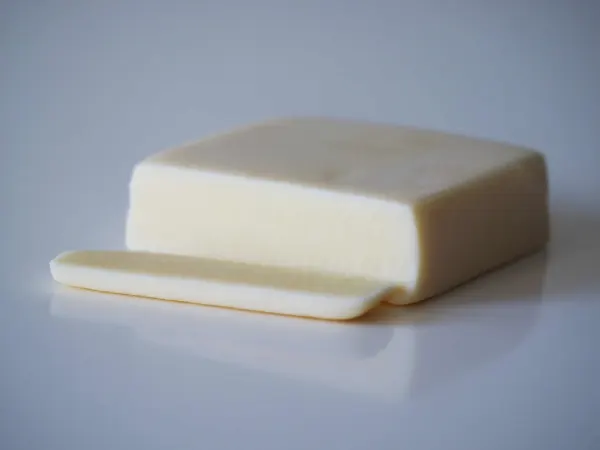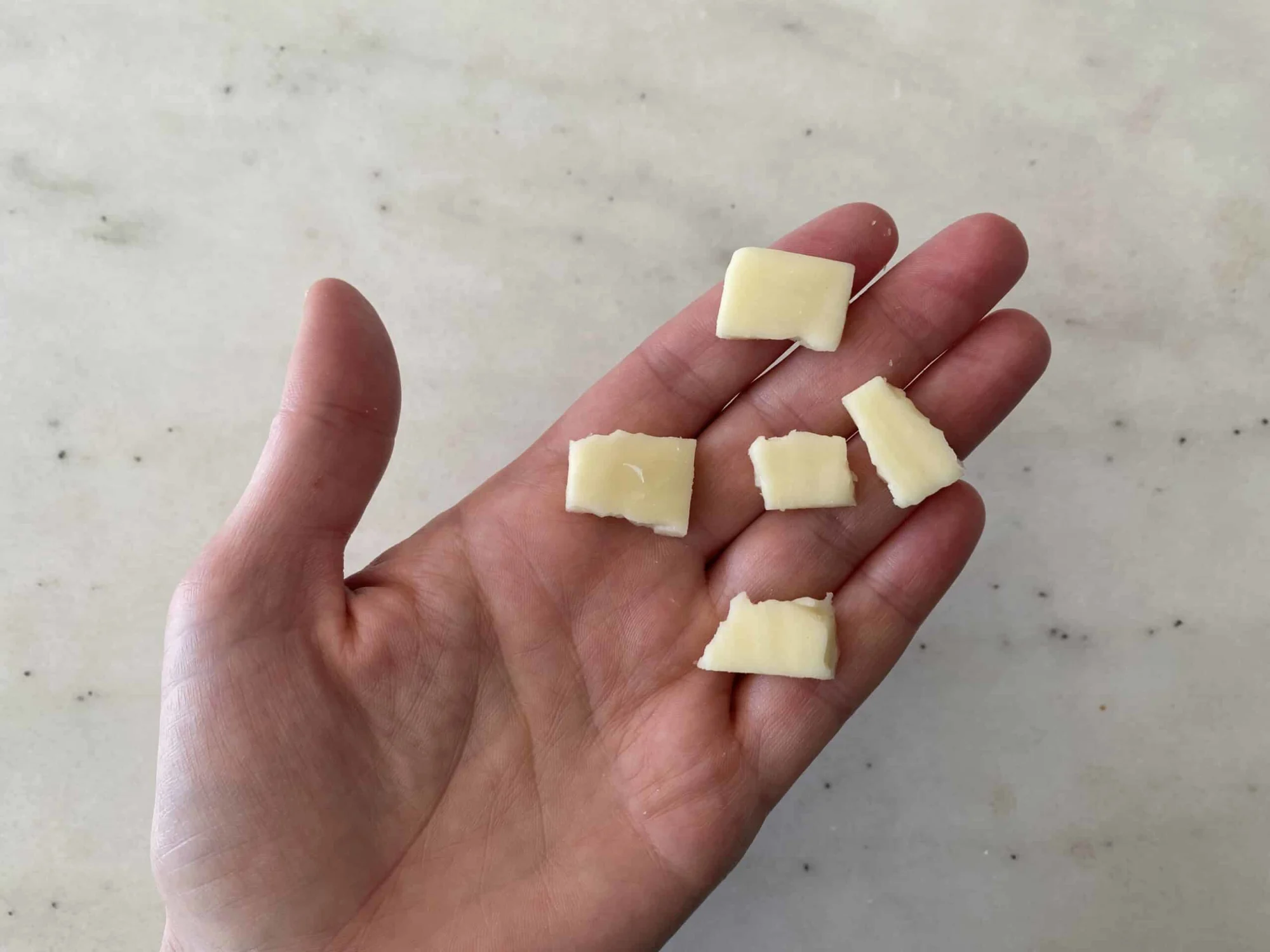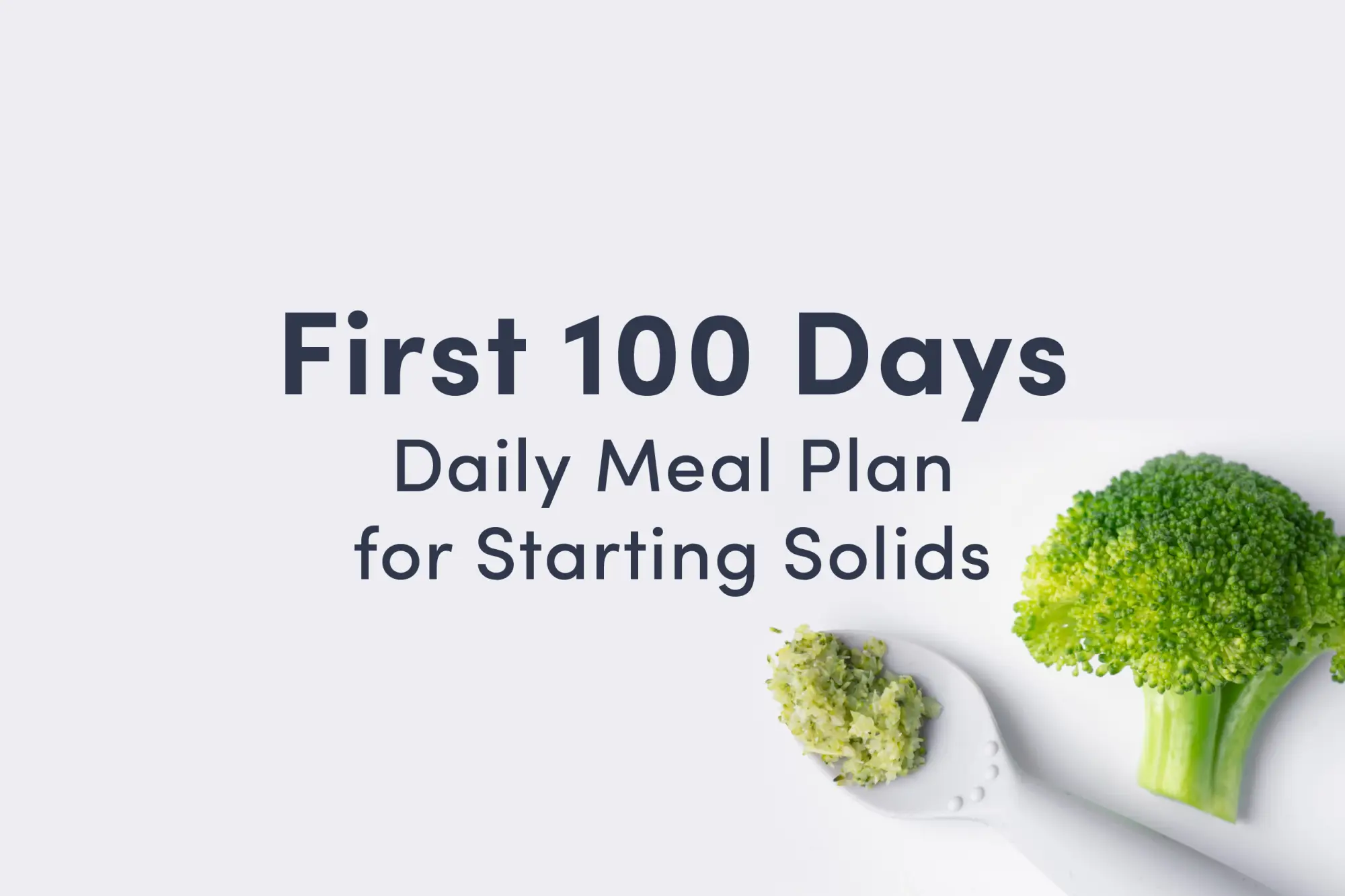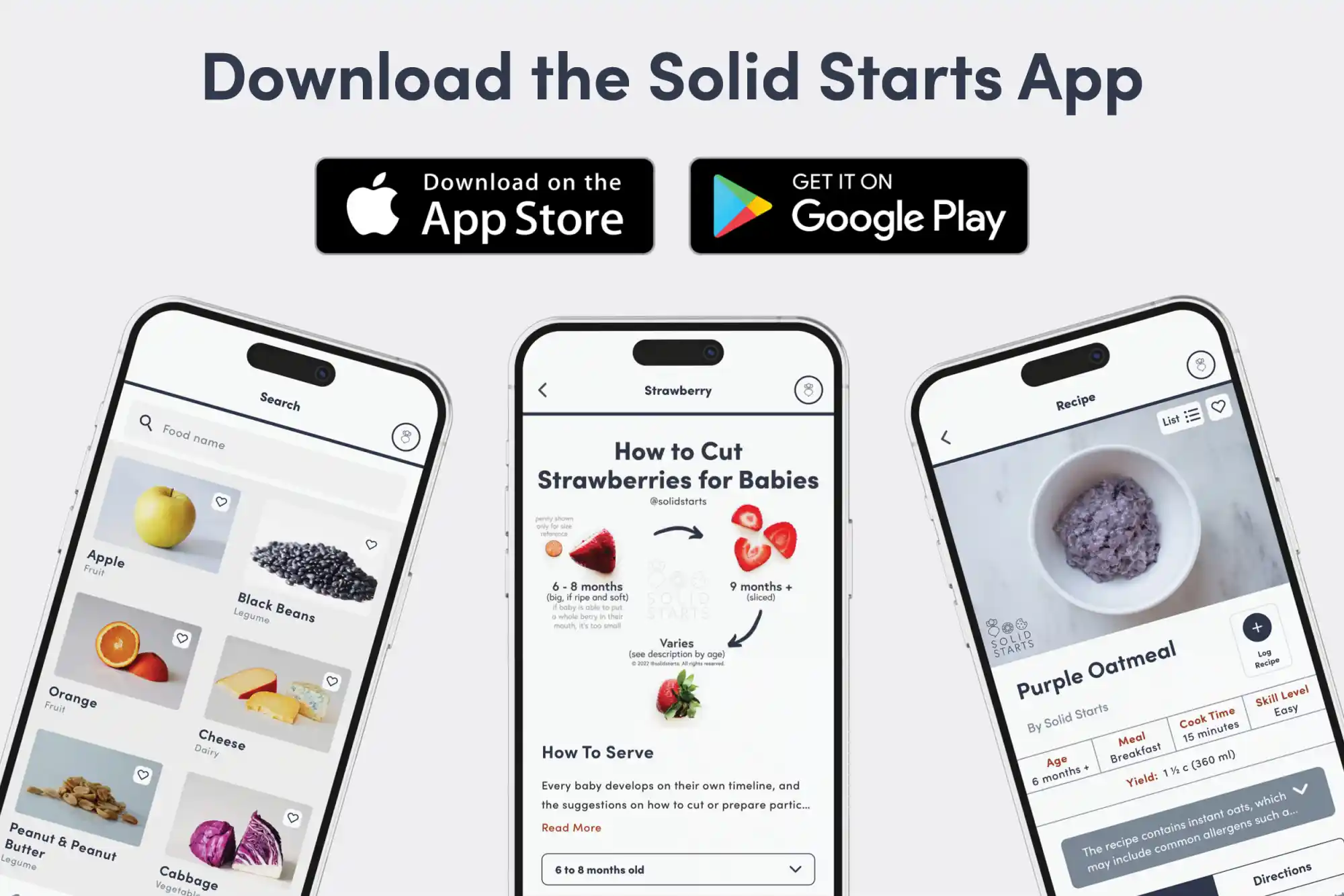Monterey Jack Cheese
Dairy
Age Suggestion
6 months
Iron-Rich
No
Common Allergen
Yes

When can babies have Monterey Jack cheese?
Monterey Jack cheese may be introduced as soon as baby is ready to start solids, which is generally around 6 months of age. While Monterey Jack cheese can be high in sodium, a taste here and there as part of a varied diet is not a cause for concern. Choose pasteurized Monterey Jack to minimize the risk of foodborne illness.
Monterey Jack is a mild cheese made of cow’s milk that originated in North America in the 19th century. How it came to be is a bitter tale: at the time, the cheese was originally known as queso del país (farmer’s cheese) by Spanish monks and colonizers in the area now called California. A Scottish immigrant named David Jacks purchased a wide swath of forests, hills, and plains (some say through devious means) in the region that would become Monterey County. After driving out the local farmers and vintners and taking control of their operations, he proceeded to market queso del pais as Jack’s cheese.
Learn more about choosing cheese to share with babies.
What are the benefits of sharing Monterey Jack cheese with babies?
Monterey Jack is rich in protein, fat, calcium, selenium, zinc, and vitamins A and B12. Together, these nutrients work together to provide the building blocks for growth, development, and brain function. They also help support bone density, taste perception, vision, energy, and immunity.
While Monterey Jack can be high in sodium, the amount of sodium that babies eat tends to be low as they learn the skills to feed themselves, and some sodium is important for supporting baby’s electrolyte balance, hydration, and movement. While many health organizations recommend holding or reducing salt in food shared with baby, recent reviews of literature suggest that this may not be necessary. Furthermore, sharing family meals, even if they contain salt, has its benefits: baby has opportunities to explore a wider variety of food, share their family food culture, and practice eating a variety of textures.
Is Monterey Jack cheese a common allergen?
Yes. Monterey Jack cheese is often made from cow’s milk, which is classified as a Global Priority Allergen by the World Health Organization. It is an especially common food allergen in young children, accounting for about one-fifth of all childhood food allergies. Keep in mind that dairy products from other ruminants such as sheep, goat, and buffalo may provoke similar allergic reactions to cow’s milk dairy products. That said, there’s good news: milk allergy often disappears with time. Research shows that the majority of children with cow's milk allergy will outgrow it by age 6, and many babies with milder symptoms of milk protein allergy (which can show up as painless blood in stool) are able to successfully reintroduce cow's milk as early as their first birthday, with the guidance of their appropriate pediatric health professionals. Note: Aged cheeses generally contain histamines, which may cause rashes in children who are sensitive to them.
Milk is a common cause of food protein-induced enterocolitis syndrome, also known as FPIES. FPIES is a delayed allergy to food protein which causes the sudden onset of repetitive vomiting and diarrhea to begin a few hours after ingestion. This is termed acute FPIES. Left untreated, the reaction can result in significant dehydration. When milk is in the diet regularly, FPIES can present as reflux, weight loss, and failure to thrive - this is termed chronic FPIES. Symptoms generally improve with elimination of milk from the baby’s diet. Thankfully, like other forms of milk allergy, FPIES which presents early in life is generally outgrown by the time a child has reached 3-5 years of age.
Lactose intolerance, which is when the body has a hard time processing lactose, the sugar that is naturally present in milk, can sometimes be mistaken for an allergy, as it can result in bloating, gas, diarrhea, nausea, and other discomfort. For those with older children who are lactose intolerant (keep in mind this is uncommon for infants and toddlers), some good news: compared with milk and certain other dairy products, many cheeses may be better tolerated by those with lactose intolerance, particularly aged cheeses, which have lower lactose content. Be sure to connect with an appropriate pediatric health care professional for any questions about lactose intolerance, and know there are many lactose-free dairy foods available.
If you suspect baby may be allergic to milk, consult an allergist before introducing dairy products like cheese. Based on a baby’s risk factors and history, your allergist may recommend allergy testing, or may instead advise dairy introduction under medical supervision in the office. If the risk is low, you may be advised to go ahead and introduce cheese in the home setting. As with all common allergens, start by serving a small quantity on its own for the first few servings, and if there is no adverse reaction, gradually increase the quantity over future meals. If you have already introduced milk and ruled out an allergy, pasteurized cheeses can be introduced as desired, without any need to start small and build up over time.
Is Monterey Jack cheese a choking hazard for babies?
Yes. Cheeses like Monterey Jack are firm and can get globby and difficult to manage in the mouth, qualities that increase the risk of choking. To reduce the risk, prepare and serve Monterey Jack in an age-appropriate way. As always, make sure you create a safe eating environment and stay within arm’s reach of baby during meals. For more information on choking, visit our section on gagging and choking and familiarize yourself with the list of common choking hazards.
How do you serve Monterey Jack cheese to babies?
Every baby develops on their own timeline, and the suggestions on how to cut or prepare particular foods are generalizations for a broad audience.
6 months old +:
Feel free to share tastes of pasteurized Monterey Jack cheese here and there as part of a varied diet. If sharing Monterey Jack at this age, offer long, flat slices to reduce choking risk and make it easier for baby to self-feed. If you want to use Monterey Jack cheese in melted form, opt for shredded cheese and sprinkle sparingly, as large globs of melted cheese can be difficult for young babies to chew and manage in the mouth. Avoid offering any kind of cheese in cubes and large chunks.
9 months old +:
Feel free to share tastes of pasteurized Monterey Jack cheese here and there as part of a varied diet. Cut pasteurized Monterey Jack into long, flat slices or bite-sized pieces torn from a flat slice. Alternatively, grate the cheese and serve the cheese on its own or folded into meals. Continue to avoid serving cheese in cube shapes or large melted globs, as these pose a high choking risk.
12 months old +:
Serve bite-sized pieces of pasteurized Monterey Jack cheese cut from a thin slice, shredded Monterey Jack, or long flat slices for biting and tearing practice. At this age, you can also melt the cheese in a thin layer over bread, tortillas, pasta, beans, or vegetables. Just make sure the cheese isn’t too hot, but also hasn’t cooled so much that it re-hardens or gets clumpy.

Learn more about how much sodium babies can have on our Sodium FAQ page.
Written by
Expert Tips Delivered to Your Inbox
Sign up for weekly tips, recipes and more!
The content offered on SolidStarts.com is for informational purposes only. Solidstarts is not engaged in rendering professional advice, whether medical or otherwise, to individual users or their children or families. No content on this site, regardless of date, should ever be used as a substitute for direct medical advice from your doctor or your medical or health professional, nutritionist, or expert in pediatric feeding and eating. By accessing the content on SolidStarts.com, you acknowledge and agree that you are accepting the responsibility for your child’s health and well-being. In return for providing you with an array of content “baby-led weaning” information, you waive any claims that you or your child may have as a result of utilizing the content on SolidStarts.com.









